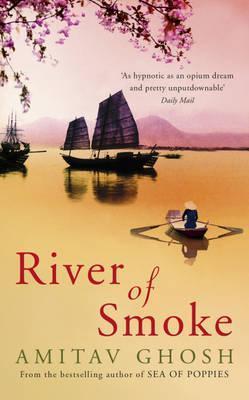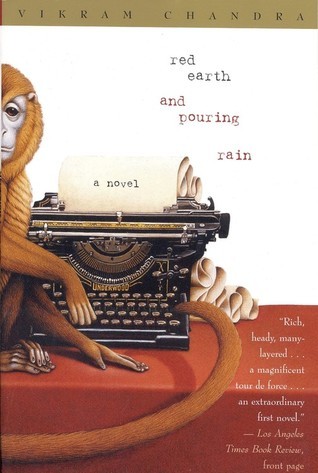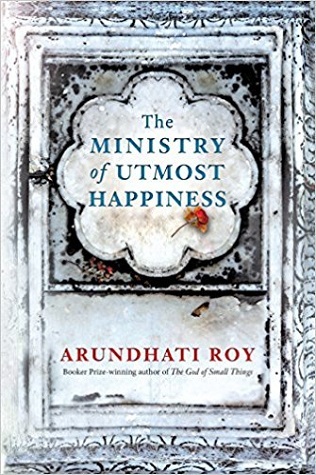
The Hungry Tide
Book Description
A storm brews over the Sundarbans, where beauty and danger intertwine in a mysterious archipelago. Amidst the mangroves and tidal waves, an American marine biologist, a local fisherman, and a refugee collide, their lives entwined by secrets, hope, and heart-wrenching choices. As they navigate the swirling waters of love and loss, the tapestry of humanity and nature unravels in haunting ways. Loyalties falter, and survival hangs by a thread, leading to a desperate struggle against the elements and within their souls. Will they find redemption, or will the hungry tide sweep them away forever?
Quick Book Summary
In "The Hungry Tide," Amitav Ghosh immerses readers in the hauntingly beautiful and perilous world of the Sundarbans, a vast coastal delta in eastern India. The novel brings together three main characters: Piyali Roy, an American-born marine biologist drawn by her search for the endangered river dolphin; Kanai Dutt, a cosmopolitan translator from Delhi; and Fokir, a humble local fisherman. As their paths cross in the unforgiving landscape, they grapple with deeply personal histories and cultural divides, forced to confront tumultuous tides of nature and human conflict. Through their journeys, Ghosh explores the interwoven connections between people and place, the resilience of hope amid tragedy, and the ethical dilemmas that arise when survival, love, and loyalty are tested by the ever-hungry tides of fate and history.
Summary of Key Ideas
Table of Contents
Human-Nature Interdependence and Conflict
The novel opens with Piyali Roy's arrival in the Sundarbans, a maze of islands teeming with mangrove forests and home to both extraordinary biodiversity and latent danger. Her scientific quest to study river dolphins leads her to Fokir, a fisherman with an instinctive knowledge of the waterways. Their partnership, though hindered by language barriers, becomes a conduit for mutual respect and connection with the land, while Kanai Dutt's involvement as a translator injects urban intellect and skepticism. The unpredictable setting, with its volatile tides and lurking tigers, forms a relentless backdrop that shapes both the characters' actions and the philosophical undertones of the narrative.
Cultural Identity and Communication
As the three protagonists venture deeper into the archipelago, they discover that survival is a tenuous and shared endeavor. Encounters with storms, animal attacks, and tidal surges blur the lines between human agency and nature's sovereignty. The motif of the "hungry tide" embodies not only environmental peril but also the insatiable forces—hunger, loss, longing—that drive each character's journey. The Sundarbans, with its shifting boundaries and historical scars, acts as both sanctuary and adversary, reflecting the complex dance between humans and the natural world.
Memory, History, and Trauma
Communication and cultural identity play significant roles in both conflict and understanding. Piya's outsider status and limited grasp of Bengali highlight the intricacies of translation in both literal and metaphorical senses. Kanai mediates between worlds—urban and rural, Indian and Western, past and present—yet struggles with his own preconceptions and desires. Fokir, rooted in the land but marginalized by class and circumstance, becomes the emotional and ethical heart of the group. These intersections expose deep-seated tensions but also hold potential for transformative empathy.
Survival, Sacrifice, and Redemption
Parallel to the central narrative, Ghosh weaves in historical traumas—the legacy of resettlement and violence in the Sundarbans, especially the 1979 Morichjhanpi massacre of refugees. Through Kanai's discovery of his uncle's diary, the novel excavates memories of these unresolved woundings, questioning the meaning of home, justice, and belonging. These layers of history enrich the immediate drama, showing how old grievances and hopes echo through present-day lives.
The climax of the novel forces the characters to confront their fears and make agonizing choices. As they are beset by a devastating storm, sacrifices are made—most notably Fokir's tragic and heroic act to save Piya. In the aftermath, those who survive are irrevocably changed, their understanding of themselves and each other transformed by love, loss, and the indomitable will to endure. "The Hungry Tide" ultimately leaves the reader contemplating the costs of human resilience and the mournful, yet essential, connections that bind people to place and to one another.
Download This Summary
Get a free PDF of this summary instantly — no email required.





